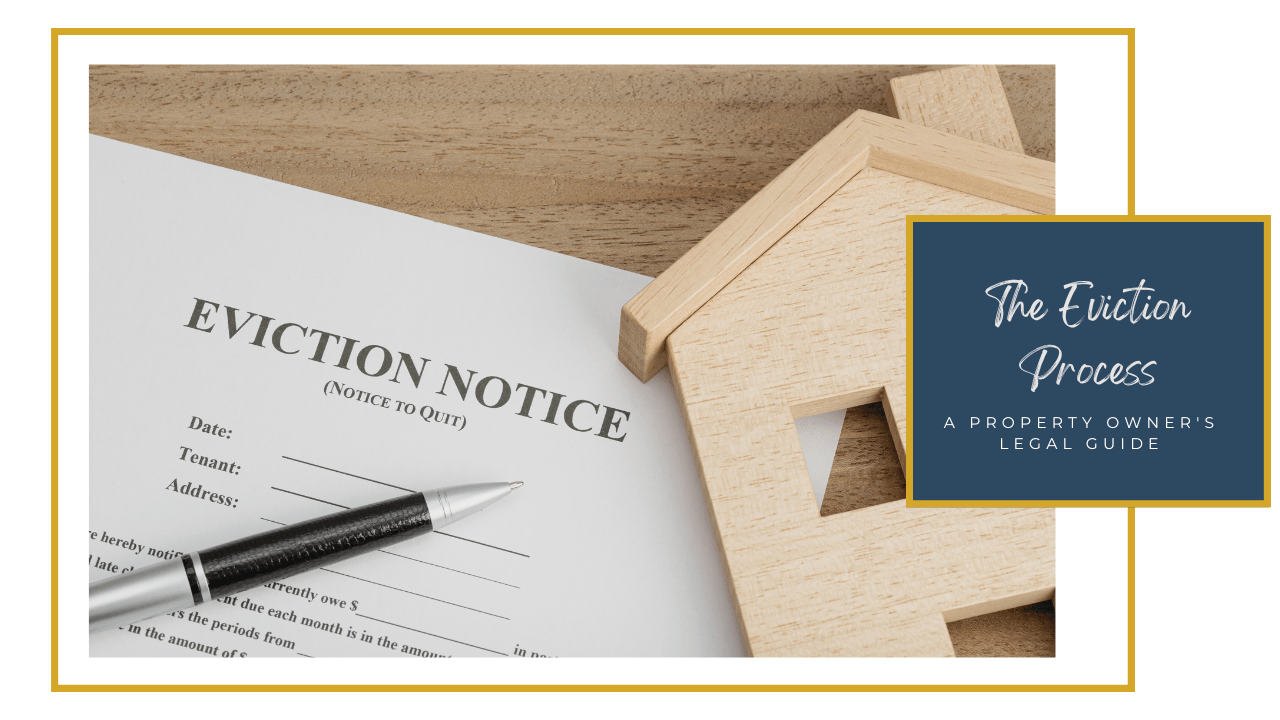The best way to deal with evictions in Richmond is to avoid them. Solid tenant screening, a clear lease agreement, and respectful tenant relationships can usually help you prevent eviction. But, sometimes thing happen. Even good tenants can stop paying rent.
Virginia has a standard set of processes and timelines that must be adhered to when you’re evicting a tenant. You have to complete the eviction lawfully, otherwise you’ll find yourself in legal trouble of your own.
We’re going to provide a look at how the eviction process must proceed in Richmond, VA. And, we’re going to caution you not to do it alone. You really want to work with an experienced eviction attorney or a professional property manager in Richmond.
At PMI Presidential, our eviction rate is low, but when we do have to take the necessary steps towards eviction, we know exactly what to do.
Here’s the guidance we can provide to any Richmond rental property owner who needs to evict a tenant.
Common Reasons for Eviction in Richmond
You need to have legal cause in order to evict a tenant from your property. According to landlord and tenant laws in Virginia, you may evict a tenant for the following reasons:
Nonpayment of rent. This is the most common reason, and typically why you’ll have to evict.
Code violations. If the tenant mistreats the property and applicable building and housing codes are violated, eviction is permitted.
Violation of a federal, state, or local law or illegal activity happening inside the home.
Violation of any rule or provisions of the rental agreement that can threaten life or safety. For lesser lease violations, you can evict if two or more violations of any rule or provision of the rental agreement occur within a six-month period.
Make sure you have legal cause before you begin your eviction process, and you’ll want to have it documented.
Serving a Notice
Before you can cancel your lease agreement and legally evict your tenant, you need to serve a notice letting them know what’s about to happen, and giving them the option to avoid eviction.
For nonpayment of rent, you’ll serve a Five Day Notice to Pay or Quit. This means the tenant will have five days to come up with the rent that’s due, or move out of the property.
For lease violations, your notice period will be longer; typically 30 days. If you’re evicting because of criminal activity, no notice is needed at all. You can remove those tenants immediately.
Always check your lease agreement before you move forward with a notice or an eviction. You may have a grace period for which tenants can pay rent, for example. Don’t serve the Pay or Quit notice until that grace period has come and gone.
Reach out to your tenants and see what’s happening. It’s possible they just need a few extra days or you might want to enter into a written payment arrangement that ensures you get the rent in before the end of the month. Time really is of the essence, however, so always be prepared to move forward.
You want to be compassionate. However, when you create and enforce a rent collection process that includes eviction as the ultimate penalty, your tenants understand the urgency of getting rent paid.
You are legally required to call off the eviction if and when tenants pay all the rent and fees that are owed. So, starting the eviction process doesn’t mean you have to see it through and ultimately evict your tenant. It’s simply a way to protect yourself while you wait for your tenants to pay what is owed.
Eviction Court Hearings
If the notice is served but the tenant neither pays the rent nor moves out of the property, you’ll have to move forward with the eviction action. This will usually include a court date. Once you’re in court, make sure you’re prepared. Depending on the type of eviction you’re pursuing, you will likely need:
A copy of your signed lease agreement. This will be needed for every possible eviction reason.
Accounting documents. Most evictions are due to nonpayment of rent, and if that’s why you’re evicting, you’ll want to show the court your financial records that demonstrate the nonpayment.
Documented evidence of lease violations.
Court records that document convictions for assault, drugs, or threats.
Correspondence between you and your tenants, including the served notice.
It’s not a good idea to be over-confident. You’ll want to be prepared and professional, but remember that you never know what your tenants are going to come up with. You’ll need all your proof, and this is another reason why a professional attorney or property manager can be so beneficial. We’re very organized and thorough when it comes to documentation.
Regaining Possession of Your Property
When the court rules in your favor and approves the eviction, you will get a judgment for possession.
Unfortunately, there are still steps that need to be taken before you can change the locks and start looking for a new tenant. This judgment for possession only means you have the right to evict the tenant. Next, you’ll need a Writ of Possession. Here’s how you do that:
The tenant has a 10-day period in which they can appeal the eviction.
After those 10 days, you can file a Request for Writ of Possession in Unlawful Detainer Proceedings. This is filed with the clerk of the General District Court. You have 180 days from the date of the judgment to request this.
The court sends the Writ of Possession to the Sheriff’s Office in order to facilitate the removal of your tenant.
The Sheriff’s Office has 30 days from the court’s signing to execute the document. You can expect the Sheriff’s Office to contact you with the scheduled date and time of the eviction.
The sheriff must give the tenant at least 72 hours to move out of the property. Usually, they provide more notice, even up to a week.
Extended Right of Redemption
Even getting your Writ of Possession does not necessarily guarantee that you’ll have your tenant out of your property. According to Virginia state law, the tenant has an extended right of redemption. This means that your tenant can pay everything owed up to two business days before the scheduled eviction date. The tenant can use a redemption, redemption tender, or extended redemption only once in any 12-month period.
You might think you’ve won your eviction case and you might feel justified in getting ready to turn that property over to a new tenant, but it would be a mistake. You still have to wait and make sure your evicted tenant doesn’t come up with the money required to stay in the property.
Physical Eviction of Tenants
When the actual eviction date arrives, the sheriff will proceed in one of two ways.
You can ask for a full eviction, in which the Sheriff will place any of the tenant’s property that is in the home on the street, at the nearest public right of way. You’ll need to be there with your locksmith so you can change the locks once the tenants and their belongings have been moved out of the home.
The Sheriff could ask you to provide a moving truck, boxes, or other materials that may make it easier to remove all of the property left behind in your house.
An alternative is the 24-hour Lock Change Eviction. Possession of the dwelling is granted to the landlord within 24 hours after the scheduled eviction date and time. On eviction day, you are asked to show up at the property with a locksmith to change all of the locks on exterior entrances to the property. Then, the property essentially stores the tenant’s furniture and other personal belongings for the next 24 hours. You have to grant access to your tenants during that 24-hour period if they want to retrieve their belongings. The tenant cannot stay in the dwelling overnight. At the end of the 24-hour period, any property left in the dwelling goes into the possession of the landlord who must sell or destroy it.
Evictions are emotional and frustrating. They can be expensive and time consuming. However, if you stay professional and respectful during the process, you’ll find that the entire eviction is likely to go smoothly. As long as you’re prepared and calm, you’ll effectively remove your tenant from your property.
Again: Don’t do the eviction on your own. Working with experts is always going to lead to better outcomes. It’s easy to make a mistake during the eviction process, and the courts and the sheriff will have no patience for that. You have to know what you’re doing, and if you don’t, your attorney or your Richmond property manager will be your best asset.
 If you want to avoid evictions altogether, be extra careful during your screening process. Develop great relationships with your tenants. And of course, work with a Richmond property management company.
If you want to avoid evictions altogether, be extra careful during your screening process. Develop great relationships with your tenants. And of course, work with a Richmond property management company.
We’d love to help you avoid evictions. Contact us at PMI Presidential, and we’ll talk about how we facilitate a positive, profitable rental experience for owners and investors.


